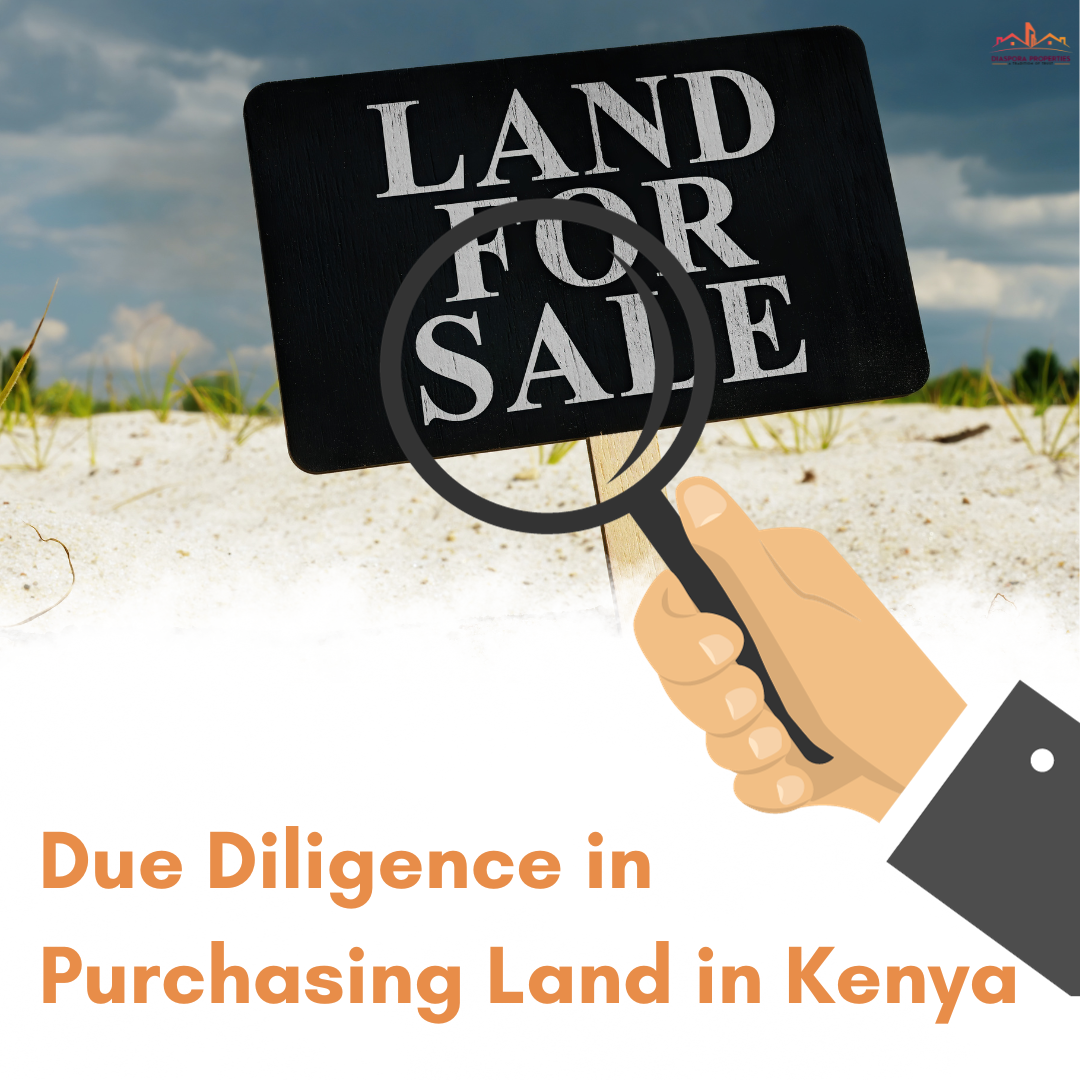Introduction
Investing in real estate is a significant decision that requires careful consideration and thorough examination, especially when it comes to purchasing property or land in Kenya. Conducting due diligence is not just a formality but a crucial step in ensuring a secure and successful investment. In this blog post, we’ll delve into the key aspects of due diligence when navigating the vibrant real estate market in Kenya.
I. Legal Verification
Before diving into any property transaction, it is essential to verify the legal status of the property. Confirm that the title deed is genuine, registered, and free of any encumbrances. Engage the services of a qualified legal professional to assist in scrutinizing land records and ensuring that the seller has the legal right to transfer the property.
II. Land Zoning and Use
Understanding the zoning regulations and permissible land use is crucial. Different areas may have specific zoning restrictions that dictate how the land can be utilized. Ensure that the property aligns with your intended purpose and that there are no restrictions or future developments that may impact your investment.
III. Land Size and Boundaries
Physically verify the size and boundaries of the land. Engage a licensed surveyor to conduct a survey and confirm that the dimensions specified in the title deed match the actual land. This step helps prevent disputes over property boundaries and ensures that you are getting what you paid for.
IV. Infrastructure and Utilities
Assess the availability and reliability of essential infrastructure and utilities. Check for access to roads, water, electricity, and sewage systems. Understanding the state of infrastructure in the area not only affects the property’s value but also influences its long-term viability and convenience.
V. Environmental Considerations
Kenya, with its diverse landscapes, may have specific environmental considerations depending on the location. Investigate whether the property is in an environmentally sensitive area or if there are any restrictions on development. Compliance with environmental regulations is crucial for a sustainable and legally sound investment.
VI. Market Trends and Property Valuation
Stay informed about the current real estate market trends in the specific region you are interested in. Consider obtaining a professional property valuation to ensure that the asking price aligns with the market value. This step helps you make an informed decision and negotiate a fair deal.
Importance of due diligence in land acquisition:
1.Legal Clarity:
- Title Verification: Due diligence helps confirm the legitimacy of the title deed, ensuring that the seller has the legal right to sell the property.
- Encumbrances Check: It helps identify any existing legal claims, mortgages, or liens on the land, preventing buyers from inheriting legal complications.
2. Financial Security:
- Preventing Fraud: Due diligence reduces the risk of falling victim to fraudulent land transactions, protecting buyers from unscrupulous sellers or forged documents.
- Budget Planning: Buyers can assess the financial implications of the purchase, including taxes, fees, and potential future costs.
3. Risk Mitigation:
- Identifying Risks: Due diligence helps buyers identify and mitigate potential risks associated with the land, allowing for risk-conscious decision-making.
- Zoning and Land Use: Due diligence helps ascertain whether the land complies with zoning regulations and local land-use plans. This is crucial for understanding the permitted uses of the property.
- Environmental Compliance: Investigation into environmental regulations ensures that the land adheres to environmental standards and is suitable for the intended purpose.
- Making Informed Decisions: Armed with comprehensive information, buyers can make informed decisions that align with their investment goals and risk tolerance.
4. Market Value Assessment:
- Negotiation Power: Through due diligence, buyers can obtain a realistic understanding of the land’s market value, empowering them in negotiations.
- Preventing Overpayment: It helps buyers avoid overpaying for a property by providing insights into comparable land sales and current market trends.
5. Future Planning:
- Development Potential: Due diligence helps buyers understand the land’s development potential, whether for residential, commercial, or industrial purposes.
- Long-Term Viability: Assessing the surrounding area and potential future developments ensures that the land retains its value and viability over time.
FAQs
Q: What is Due diligence in land purchase?
A: Due diligence in land purchase refers to the comprehensive investigation and verification process that potential buyers undertake before finalizing the acquisition of a piece of land.
Q: How can I verify the authenticity of the land title?
A: Engage a qualified legal professional to conduct a thorough title search. This process involves checking land records, confirming ownership details, and ensuring there are no legal encumbrances.
Q: How is the market value of the land determined?
A: A professional property valuation, often part of due diligence, involves assessing market trends, comparable sales, and the land’s unique characteristics to determine its fair market value.
Q: Can I trust the provided land dimensions in the legal documents?
A: Physical verification through land surveying is a crucial step in due diligence. It ensures that the land’s actual dimensions match those specified in legal documents, preventing boundary disputes.
Q: How can I negotiate based on the results of due diligence?
A: Armed with the information gathered during due diligence, buyers can negotiate from a position of strength, addressing any concerns or requesting adjustments to the terms of the deal.
Q: What happens if issues are discovered during due diligence?
A: Depending on the severity of the issues uncovered, buyers may negotiate for adjustments to the deal, request the seller to address the concerns, or, in extreme cases, decide to walk away from the transaction.
Conclusion
In the dynamic and booming real estate of Kenya, due diligence is not just a precautionary measure; it is an integral part of responsible property investment. By meticulously examining legal, physical, and environmental aspects, investors can mitigate risks and make well-informed decisions. Engage with qualified professionals, conduct thorough research, and navigate the terrain of property acquisition in Kenya with confidence. Your due diligence today ensures a secure and prosperous real estate investment tomorrow.

